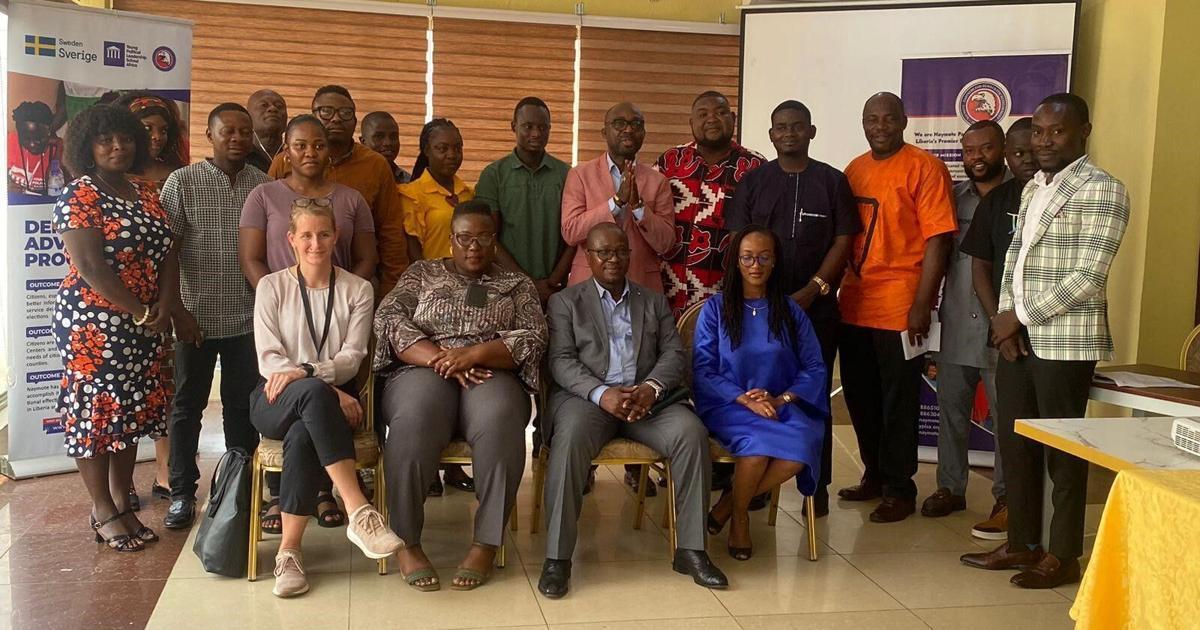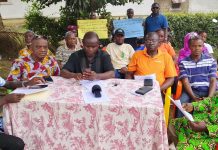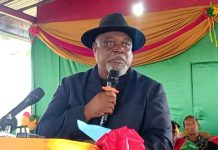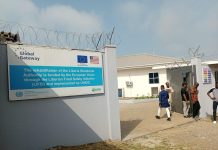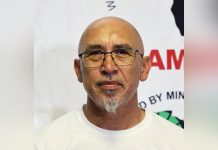Africa-Press – Liberia. Eddie D. Jarwolo, Executive Director of Naymote Partners for Democratic Development, presented survey findings on the institutional and operational capacity of five county service centers (CSCs) on Tuesday.
The event, held at a resort in Sinkor, brought together a diverse group of stakeholders, including government representatives, political parties, civil society, CSC representatives, and international partners such as the Embassies of Sweden and Ireland, as well as UNDP, among others.
CSCs were established across the 15 Counties under the Liberia Decentralization Support Programme (LDSP) supported and managed by UNDP Liberia. They offer various services which include the issuance of drivers’ licenses, traditional marriage certificates, birth certificates etc.
The aim of the centers was to also take governance closer to the people in rural parts of the country and ensure greater participation of the people in their own development process as well as an equitable distribution of the country’s resources.
The centers, which operate under the Ministry of Internal Affairs, still face challenges particularly with respect to insufficient and irregular disbursement of budgetary allotments to cover staff costs and operating expenses session, persistent disruptions in the supply of power/electricity, and lack of resources to conduct public outreach and awareness.
According to Jarwolo, the survey, which focused on service centers in Margibi, Bong, Lofa, Nimba, and Grand Bassa counties, revealed significant shortcomings in service delivery.
Jarwolo emphasized the importance of strong local governance in building a democratic society. “We believe that local government is the foundation of a democratic society. This survey helps us understand the issues better, and with the support of our partners, we can work towards effective solutions.”
He added that the centers were found to be underperforming, offering limited services, and suffering from long processing times due to approvals required from Monrovia. This inefficiency results in extra costs for citizens and unmet expectations.
“These service centers have no capacity development plans and lack operational strategies,” said Jarwolo. “Even though they generate revenue, they have no control over how it is utilized.”
Despite these challenges, a majority of respondents (86%) reported having contact with the service centers in the past year.
However, 48% of respondents found accessing the centers difficult, and 65.12% claimed they did not give bribes or gifts to obtain services. Notably, 73% of respondents supported the idea that a portion of the revenue generated should remain at the centers for operational costs.
Oscar Bloh, Consultant and Executive Director of the Center for Democratic Governance (CDG), highlighted the objectives of the survey: “We aimed to assess the institutional and operational capacity of the county service centers, gather end-user feedback on service quality, and propose recommendations for improvement.”
He said the survey revealed that the institutional capacities of the county service centers varies significantly, with Grand Bassa County being the most challenged. Bloh added that while the centers remain highly relevant to citizens, their effectiveness continues to be a major issue.
“One of the primary challenges identified was the irregular disbursement of financial resources by the central government,” he explained. “Additionally, the availability of services is inconsistent across counties, with an average of 14 services offered per center.”
According to him, the centers lack standardized accounting software and consistent financial reporting practices, which hampers their operations. Though there is a system in place for payment authorization, there is no system for managing petty cash, and bank reconciliation practices are not standardized.
Furthermore, while some audits were conducted in 2023, notably in Lofa, the compilation of monthly financial reports is not consistent across all centers.
Further recommendations from the survey include the need for the Ministry of Finance and Development Planning (MFDP) and the Liberia Revenue Authority (LRA) to provide capacity-building support to the service centers in financial and administrative management.
Bloh opined that the Ministry of Internal Affairs (MIA) and the Governance Commission should collaborate to develop a plan for the effective supervision of the CSCs. Additionally, the Governance Commission should conduct evaluations of the centers and offer technical support to improve citizen feedback mechanisms.
“The government should ensure regular disbursement of financial resources to the CSCs for operational costs and delegate certain services, such as issuing traditional marriage certificates, vehicle registration, and driver’s licenses, to the CSCs,” he said.
For his part, Deputy Internal Affairs Minister for Planning and Research, Edwin Mulbah, acknowledged the concerns raised: “What you have presented here is a serious concern to us as a government. This government is committed to decentralization as a means to improve the conditions of its citizens.”
Mulbah assured that the government would consider Naymote’s recommendations seriously: “We encourage our collaborating partners to heed these recommendations, and we will provide feedback.”
Meanwhile, the survey was conducted in partnership with the Center for Democratic Governance (CDG), Afrobarometer’s national partner in Liberia, and supported by Naymote through the Democracy Advancement Program (DAP), funded by the Swedish International Development Cooperation Agency (SIDA) through the Embassy of Sweden in Monrovia.
For More News And Analysis About Liberia Follow Africa-Press

